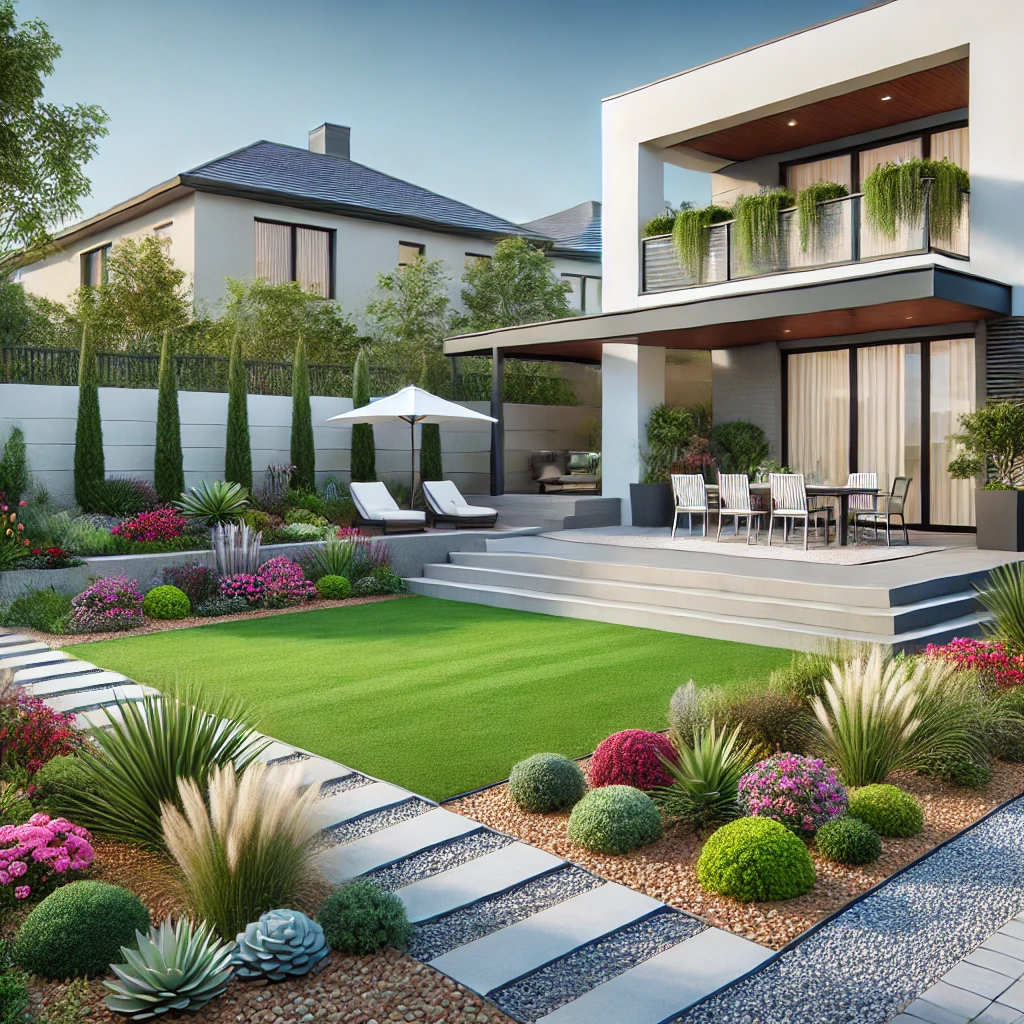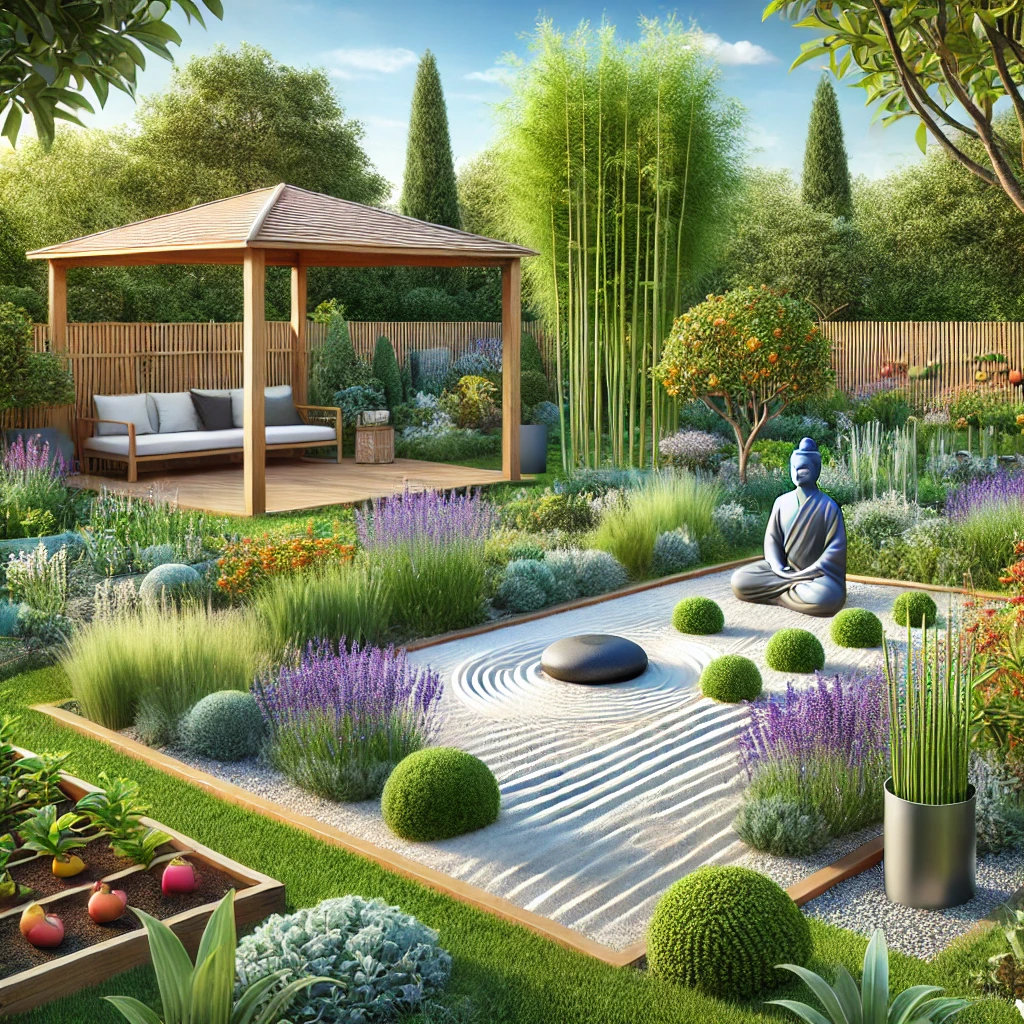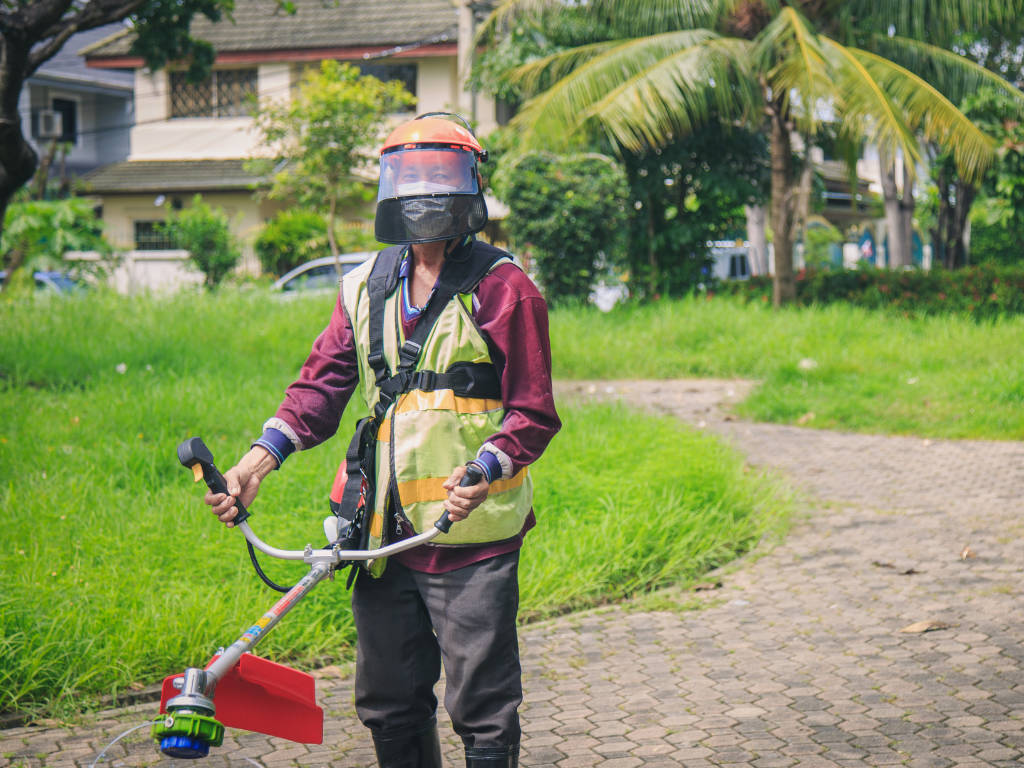As homeowners and businesses become busier, the demand for low-maintenance landscaping solutions is rising. Clients…
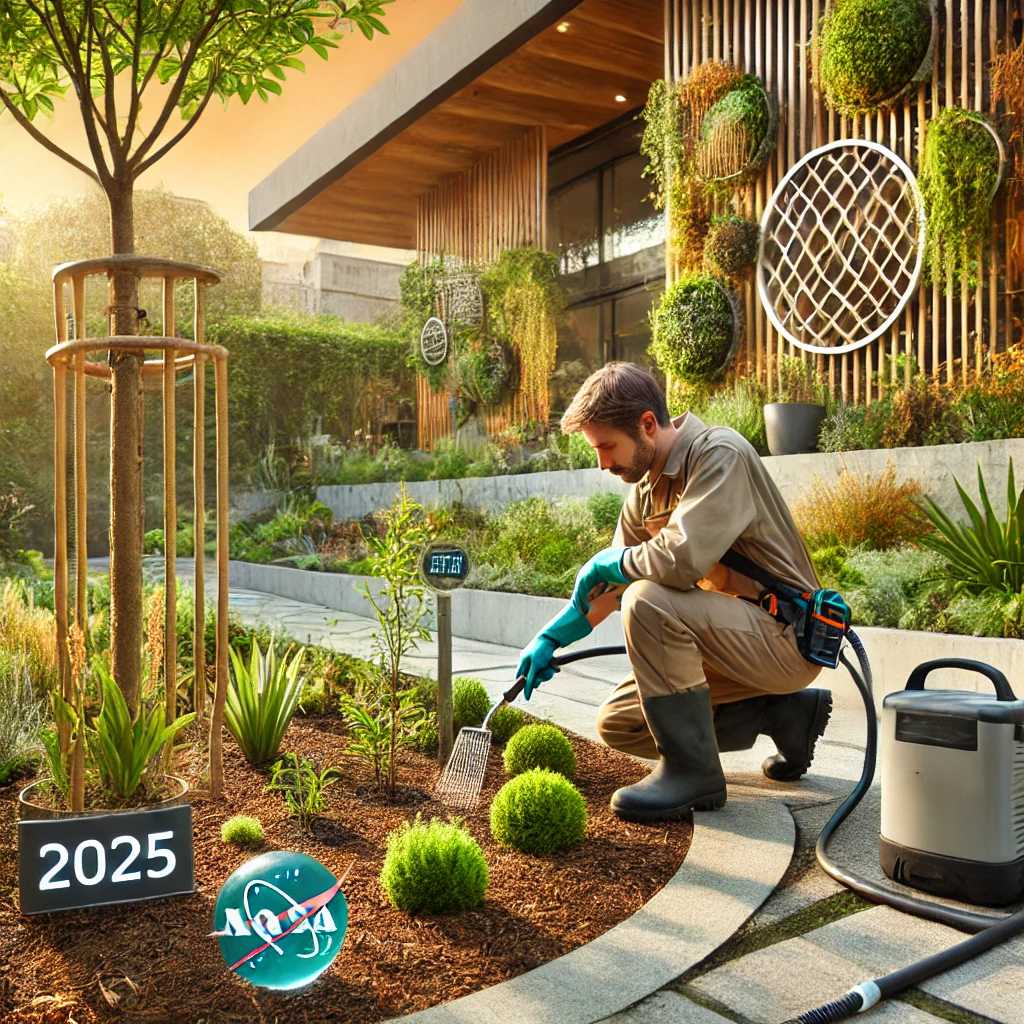
2025 Landscaping and Gardening Trends: Shaping the Future of the Industry
The landscaping and gardening industry is rapidly transforming, driven by technological shifts, consumer preferences, and environmental awareness. As we look ahead to 2025, landscaping and gardening trends, contractors, and landscape professionals are poised to benefit from these trends, emphasizing sustainability, smart technology, and innovative design solutions.
In this comprehensive blog, we’ll explore the vision for the future of landscaping and gardening, focusing on key trends, challenges, and opportunities that will shape the industry in the coming years.
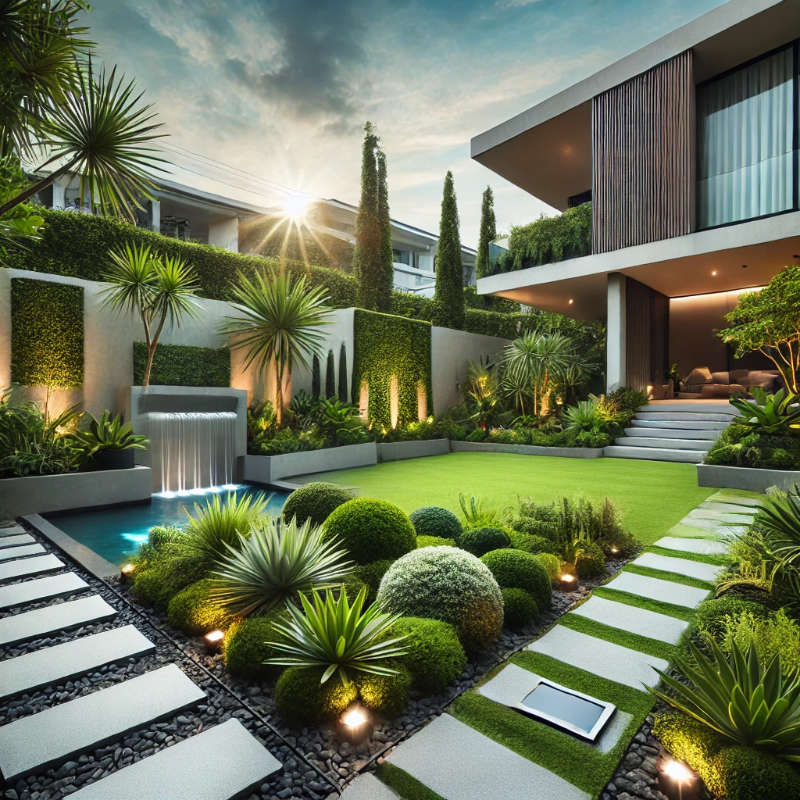
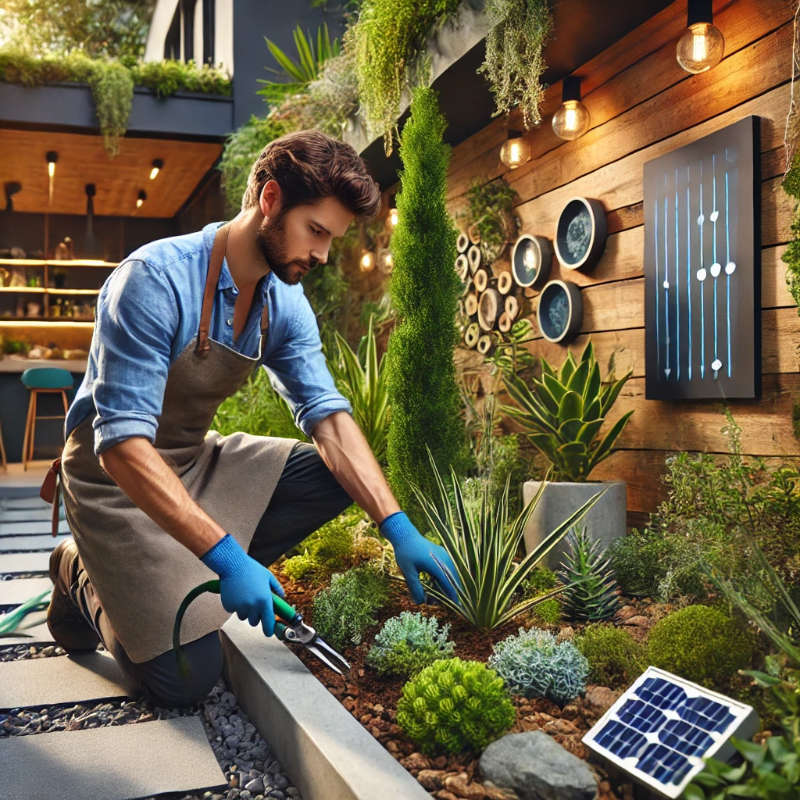
Sustainable Practices in 2025 Landscaping and Gardening Trends
Sustainability has moved from a niche interest to a central tenet of modern landscaping. By 2025, this trend is expected to evolve further, with residential and commercial clients seeking eco-friendly solutions that reduce water consumption, lower carbon footprints, and promote biodiversity.
Key Trends:
- Drought-resistant landscaping: As water scarcity becomes a growing concern in many regions, drought-tolerant plants and xeriscaping (minimal water usage) will become more prominent in landscape design.
- Native plants: Using native plants will reduce maintenance and water needs and promote local wildlife, including pollinators such as bees and butterflies.
- Composting and organic practices: Contractors will see a surge in demand for organic gardening methods, including natural fertilizers and composting, as homeowners prioritize healthier ecosystems.
In the next few years, the shift toward regenerative landscaping—which restores and enhances the land—will further set contractors apart in a competitive market.
Smart Technology in 2025 Landscaping and Gardening Trends
Technology is becoming an essential tool in the landscaping and gardening industry. Integrating smart technology offers enhanced efficiency and precision, helping contractors easily manage tasks like irrigation, lighting, and maintenance.
Top Smart Tech Trends for 2025:
- Smart irrigation systems: These systems, powered by sensors and weather data, automatically adjust watering schedules based on moisture levels, reducing water waste and optimizing plant health.
- Automated lawn care: Robotic lawnmowers and autonomous garden tools will gain popularity, allowing for continuous, low-maintenance upkeep of large properties.
- AI-driven design tools: Landscape contractors are beginning to use artificial intelligence (AI) and augmented reality (AR) to create detailed design plans and visualizations, making it easier for clients to envision the final product.
These innovations improve operational efficiency and offer contractors a competitive edge by providing higher levels of customization and real-time adjustments.
Climate-Adaptive Solutions in 2025 Landscaping and Gardening Trends
Adapting to changing climate conditions is one of the industry’s most significant challenges 2025. Contractors who can offer climate-resilient solutions will be well-positioned to thrive.
Key Climate-Resilient Practices:
- Stormwater management solutions: With more frequent extreme weather events, landscape contractors will focus on installing rain gardens, permeable pavers, and bioswales that help manage runoff and reduce flooding risks.
- Heat-tolerant plant selections: As average temperatures rise, plants that thrive in extreme heat conditions will become essential for landscape designs.
- Green roofs and walls: These eco-friendly installations will continue gaining popularity, especially in urban areas with limited space. They offer insulation, reduce urban heat islands, and improve air quality.
Contractors who stay ahead of these climate trends will help clients create resilient, sustainable spaces that can withstand future environmental challenges.
Health and Wellness: Key Drivers in 2025 Landscaping and Gardening Trends
As the wellness movement grows, landscape designs promoting health and relaxation will see increased demand. Gardens and green spaces are recognized as essential to improving mental well-being, providing areas for meditation, exercise, and outdoor living.
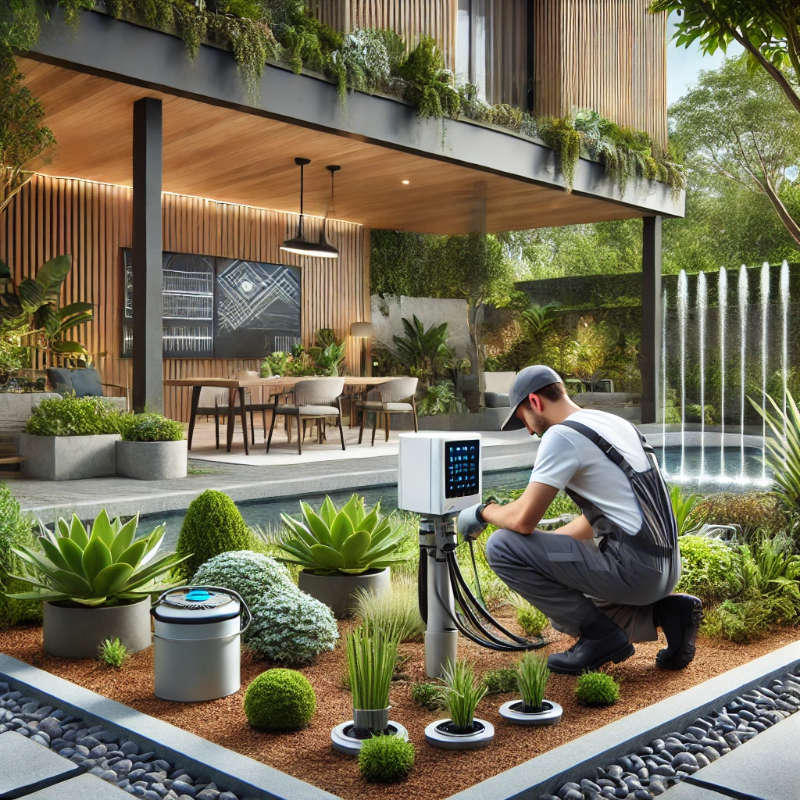
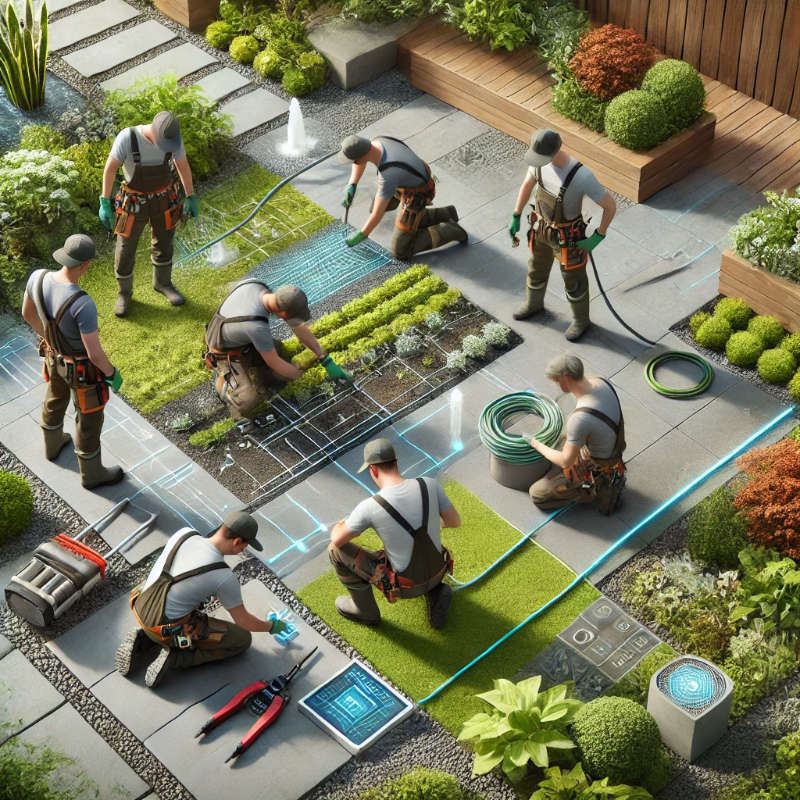
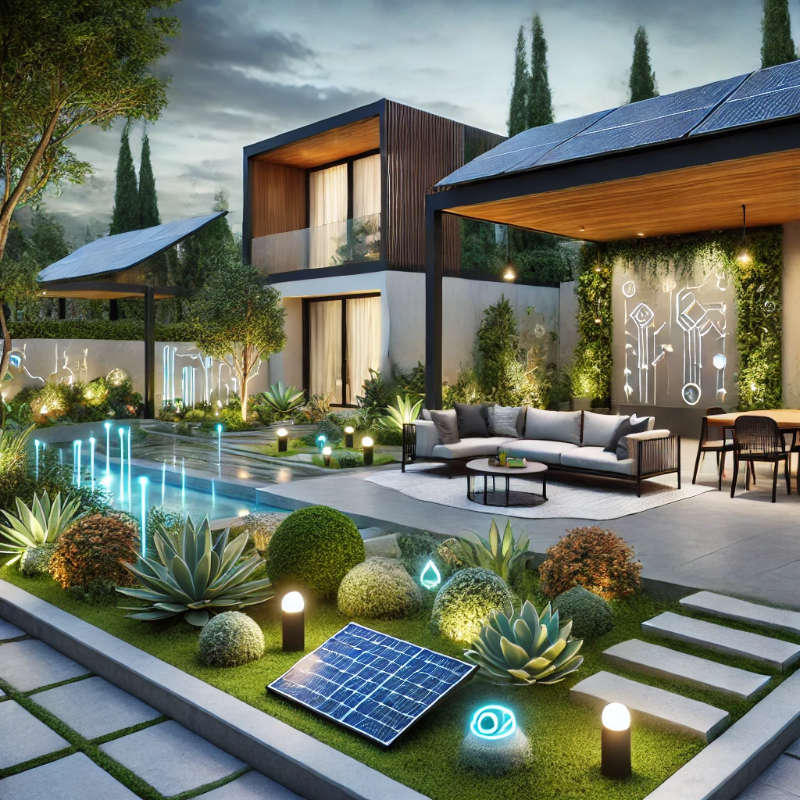
Design Trends Focused on Wellness:
- Therapeutic gardens: Gardens designed for mindfulness and relaxation, often featuring water features, sensory plantings, and quiet seating areas, will become a key component of residential and corporate landscape projects.
- Edible landscapes: Clients will look for landscapes that offer aesthetic value and produce food, such as fruit trees, vegetable gardens, and herb plants. This trend ties into the broader demand for sustainability and self-sufficiency.
- Outdoor living spaces: With the rise in remote work, more homeowners are investing in outdoor living spaces that extend their home environment into their gardens. Patios, outdoor kitchens, and fire pits will continue to be popular in suburban and urban settings.
These health-focused design trends allow contractors to offer more value by creating environments that promote their clients’ holistic well-being.
Low-Maintenance Design in 2025 Landscaping and Gardening Trends
Time-saving, low-maintenance solutions are expected to dominate in 2025. Busy homeowners and businesses opt for landscape designs requiring less frequent upkeep without sacrificing aesthetics.
Key Features of Low-Maintenance Landscapes:
- Hardscaping dominance: The use of stones, pavers, gravel, and other hardscape materials instead of lawns will continue to rise, offering durability and reducing the need for regular maintenance.
- Artificial turf: High-quality synthetic turf will remain a popular choice, particularly for areas where natural grass is difficult to maintain due to climate or heavy use.
- Perennial plants: Planting perennials that return year after year without needing to be replaced will also help reduce clients’ maintenance costs.
This shift toward low-maintenance landscaping allows contractors to cater to clients who want beautiful outdoor spaces with minimal upkeep, ultimately saving time and money.
Future-Proofing Your Landscaping Business
The rapid evolution of the landscaping and gardening industry presents opportunities and challenges for contractors. To remain competitive and profitable in 2025, contractors must adopt forward-thinking strategies.
Key Actions for Contractors:
- Embrace new technology: From smart irrigation to AI-driven design, contractors who incorporate these tools will streamline operations and improve client satisfaction.
- Focus on sustainability: Clients are increasingly seeking eco-friendly options. Offering services like xeriscaping, native plant installations, and stormwater management will set you apart.
- Stay educated on climate impacts: Climate-resilient landscaping is not just a trend; it’s a necessity. Continuing education and staying informed on environmental shifts will help you offer relevant, lasting solutions.
- Expand service offerings: To meet clients’ changing needs, consider diversifying your services to include outdoor living spaces, wellness gardens, and low-maintenance design options.
Learn how we can help you transform your business in 2025!
Future-Proof Your Landscaping Business?
The landscaping and gardening industry is evolving fast. Don’t fall behind—go to Sendwork.com to learn how we can help you stay ahead with smart technology, sustainable practices, and wellness-driven design solutions based on the latest 2025 landscaping and gardening trends.
Conclusion
The vision for the landscaping and gardening industry’s future is clear: sustainability, technology, and wellness are at the forefront of the trends shaping 2025. By adapting to these trends, contractors can offer innovative, future-proof solutions to their clients. Whether through sustainable practices, cutting-edge technology, or wellness-focused designs, the opportunities are vast. Contractors who embrace these changes will enhance their business growth and contribute to a greener, healthier future.
This evolving industry offers immense potential for contractors ready to seize the moment. Stay ahead of the curve by adopting the latest trends and positioning your business as a modern landscape and gardening leader.

